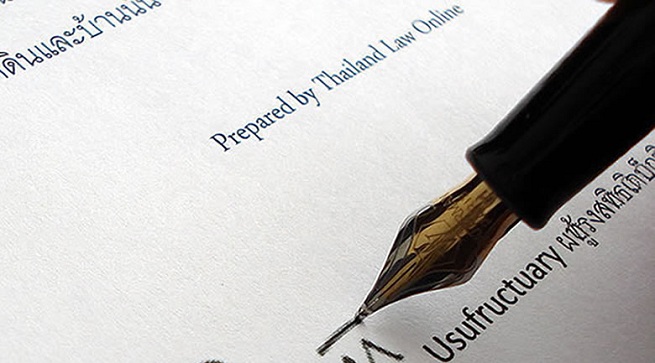Usufruct in Thailand. For those interested in enjoying a property in Thailand but unable to own land directly, the concept of usufruct offers a compelling alternative. This article explores usufruct in Thailand, its benefits, and the key points to consider.
What is Usufruct?
In Thai law, usufruct, known as “Sidhi-kep-kin,” grants a person (the usufructuary) the right to use and enjoy immovable property (land or buildings) owned by another (the owner). The usufructuary can live in the property, rent it out, or cultivate the land, reaping any profits generated.
Benefits of a Usufruct Agreement
Usufruct offers several advantages, particularly for foreign individuals:
- Land Enjoyment: Foreigners are prohibited from owning land in Thailand. Usufruct provides a way to gain rights to use and enjoy the property for a set period.
- Long-Term Commitment: Usufruct agreements can be established for extended periods, even a lifetime, offering stability and security.
- Profit Potential: The usufructuary can rent out the property or utilize it for commercial purposes, generating income.
Responsibilities of a Usufructuary
While enjoying the benefits, the usufructuary also has important responsibilities:
- Maintaining the Property: They are obligated to maintain the property in good condition, just like a responsible owner.
- Taxes and Upkeep: The usufructuary is responsible for property taxes, maintenance costs, and utilities.
- Returning the Property: Upon termination of the agreement, the property must be returned to the owner in the same condition it was received.
Establishing a Usufruct Agreement
A usufruct agreement is a formal contract requiring careful consideration. Key points include:
- Duration: The agreement should clearly define the usufruct period, whether a fixed term or a lifetime grant.
- Termination Clauses: Outline the circumstances under which the agreement can be terminated by either party.
- Restrictions on Use: Specify any limitations on how the usufructuary can utilize the property.
- Registration: For the usufruct to be legally binding, it must be registered at the local Land Department.
Seeking Professional Guidance
Usufruct agreements can be complex. Consulting with a lawyer experienced in Thai property law is crucial to ensure the agreement protects the interests of both the usufructuary and the owner. They can guide you through the drafting process, registration, and answer any questions you may have.
By understanding the rights and responsibilities associated with usufruct, you can leverage this legal tool to enjoy the benefits of property ownership in Thailand.

